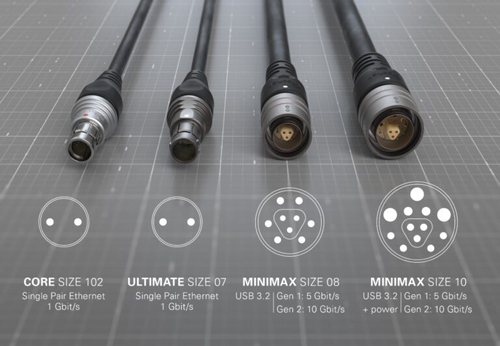June 5, 2023
Industry 4.0: Welcome to the Fourth Industrial Revolution
Inexpensive sensors, fast networks, industrial globalization, and software advances including AI and machine learning have created an environment where factories, supply chains, workers, consumers, and investors can be connected everywhere, all the time.Industry 4.0, propelled by the Industrial Internet of Things (IIoT), is transforming business by embracing connectivity. IIoT connects the full scope of business operations using internet technology to link machines, workers, and corporate systems with a goal of accelerating operations, improving quality, and boosting financial performance. New technologies and components, including affordable processors and sensors that provide real-time access to information, along with advancements in network connectivity and artificial intelligence, are increasing capabilities and reducing costs.
Three challenges related to increased connectivity stand between today's business architectures and the Industry 4.0 future. These challenges are defeating cyberattacks and security breaches, integrating global supply chains, and fully implementing the capabilities of high-performance networks.
Cybersecurity
Malicious actors are already looking for ways to hack Industry 4.0 operations, and a series of early attacks on manufacturing and infrastructure demonstrate the scope of risks connected networks face. Security practices designed for minimally networked systems rely on isolation and local access controls. Those practices are fundamentally inadequate when industrial systems are connected through industrial connectivity protocols such as SCADA (Supervisory Control and Data Acquisition) that gather and analyze real-time data to monitor and control the activities of equipment. Without constant surveillance and network security practices that constantly evolve to stay ahead of potential attacks, Industry 4.0 solutions can open networks to potential interference.
Building security into Industry 4.0 solutions is essential to address the vulnerabilities created by increased connectivity. Because suppliers and partners are closely integrated within an Industry 4.0 solution, IoT-related vendors (hardware and software vendors, service providers, consultants, and others) must be integrated into security plans. Most Industry 4.0 transformations include actions to align with U.S. or international cybersecurity standards such as NIST SP 800-53 or ISO 27001.

Fischer Connectors designs, manufactures, and distributes rugged connectors and cable assemblies particularly suitable for applications requiring faultless precision, durability and resistance to extreme conditions. They can now combine SPE's unique features with their renowned high-reliability, high-performance, sealed connectors to take SPE connectivity to new heights and markets.
CONTINUE READING COMPLETE ARTICLE
Fischer Single Pair Ethernet Connectivity Solutions Flyer
WHITE PAPER
Contact our Sales Department for technical assistance and more information.